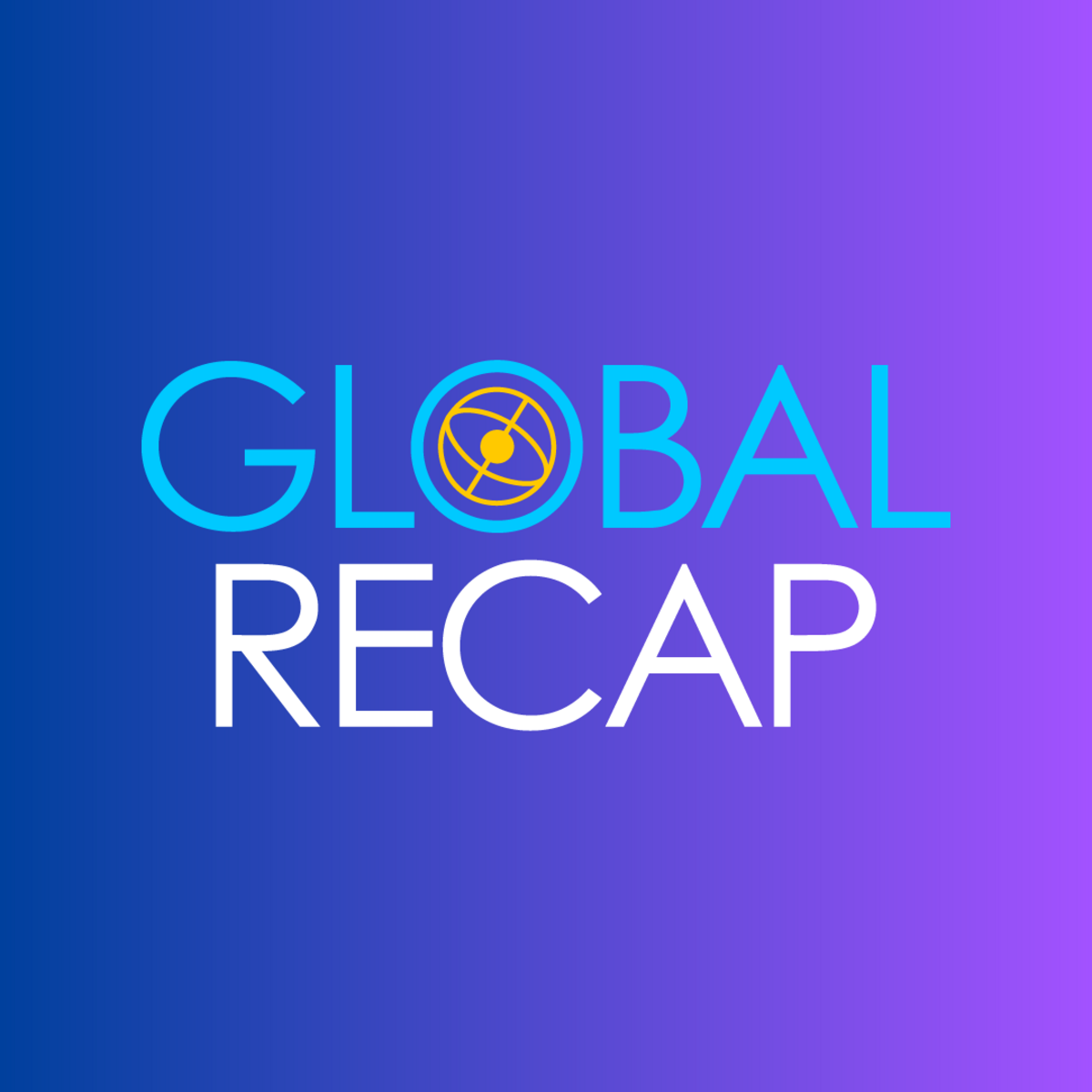
Hi Global Recap readers,
Weekends often bring a cloud of uncertainty on the geopolitical front, since the markets are on pause.
But this time, there’s a rare spark of optimism (on paper, at least) as a decades-old conflict is declared "over."
And this effectively throws Russia and France under the bus.
Love him or loathe him, and no matter how you read his motives, Trump has been making moves to end long-running disputes, a trend that began with the Abraham Accords in his first term.
We’ll dig much deeper into this in today’s Deep Dive. 👇
🌐 WORLD
Fast Scroll News
🇺🇸 Trump Hosts Putin Talks

Trump just confirmed he’ll meet Putin in Alaska on August 15 to hash out a potential Ukraine peace deal.
The controversial part? A proposed territory swap that could redraw the map.
Plan: Trump says “some swapping of territories to the betterment of both” is on the table.
Proposal: Bloomberg reports the deal might let Russia keep Donbas and Crimea, while giving up Kherson and Zaporizhzhia.
Pushback: Zelenskyy remains publicly opposed to ceding land, though he’s in “constant contact” with the US.
🇸🇧 Solomon Islands Blocks Forum

Solomon Islands Prime Minister Manasseh Sogavare and Chinese President Xi Jinping in Beijing in 2019.
Solomon Islands just barred the US, China, and Taiwan from attending the Pacific Islands Forum next month, citing an “unfinished review” of diplomatic ties. Translation: Beijing’s had something to do with it.
Exclusion: All 21 donor nations, including the US, China, and Taiwan, are off the guest list for the September summit.
Pressure: Taiwan’s allies in the region say China pushed hard to keep Taiwan out.
Criticism: Opposition MP Peter Kenilorea Jr called it “a massive missed opportunity” to engage with global donors.
Workaround: China may still hold side meetings with Pacific leaders, risking a deeper split in the bloc.
📌 Context: Solomon Islands switched diplomatic recognition from Taiwan to China in 2019, and has since become Beijing’s closest security partner in the Pacific. The region remains one of the most aid-dependent and geopolitically contested on Earth.
🇵🇰 Pakistan Forces Strike

Pakistani troops just killed 33 militants trying to slip across the Afghan border in Balochistan’s Zhob district, labeling them “Khwarij” and pinning the blame on India (no proof offered, of course).
Operation: The raid happened overnight, targeting militants the government says are tied to the Pakistani Taliban.
Accusation: Pakistan claims India backs them, but hasn’t shown any evidence.
Praise: Prime Minister Shehbaz Sharif called it a “successful operation.”
Lockdown: Balochistan’s mobile internet is now shut off until August’s end.
📌 Context: Balochistan has battled separatist violence for years, with the Pakistani Taliban and Baloch Liberation Army both seeking independence and causing trouble near the Afghan border.
🇮🇳 India Freezes US Arms

India just paused its multi-billion-dollar weapons purchase from the US after Trump slapped a 25% tariff hike on Indian exports, citing its Russian oil deals.
Deals: Talks stalled on Stryker combat vehicles, Javelin missiles, and a $3.6B Boeing aircraft package.
Trip: Defense Minister Rajnath Singh canceled his Washington visit meant to seal the deals.
Leverage: Although, India hinted it might cut Russian oil imports if the US offers similar prices.
Denial: India’s defense ministry called reports of the freeze “false and fabricated,” but insiders say there’s “no forward movement.” So is it canceled or just paused?
🇦🇺 Australia Condemns Gaza Plan

Israeli ambassador to Australia Amir Maimon (left) and Australia’s Foreign Affairs Minister Penny Wong (right) at a 2024 vigil marking the first anniversay of the October 7 attacks.
Australia just joined Germany, Italy, New Zealand, and the UK in a joint statement slamming Israel’s planned takeover of Gaza City, warning it could violate international law and worsen famine.
Warning: Foreign Affairs Minister Penny Wong said the offensive risks “permanent forced displacement” of 1 million Palestinians.
Break: Germany also suspended weapons deliveries that could be used in the fighting.
Push: The statement demands Hamas release hostages and Israel fix its registration system for aid groups.
Plan: Netanyahu wants to disarm Hamas, take security control, and install a new civil administration. On X, he just posted his justification for the offensive: Israel isn’t "occupying" Gaza, he claims it’s “going to free Gaza from Hamas.”
📌 Context: Israel’s war cabinet just approved the Gaza City operation despite military objections.

🇦🇲 ARMENIA–AZERBAIJAN
Trump’s corridor,
Moscow’s headache.

Azerbaijan President Ilham Aliyev (left), US President Trump (middle), and Armenian Prime Minister Nikol Pashinyan (right).
Trump just hosted Armenia and Azerbaijan at the White House to sign a peace framework ending decades of war over Nagorno-Karabakh, and the US just walked away with exclusive rights to a strategic corridor.
Russia, Iran, and Turkey? All sidelined.
The Deal at a Glance
Let’s be precise before we talk about implications. Here is what actually got signed and said.
Armenian PM Nikol Pashinyan and Azerbaijani President Ilham Aliyev signed a “peace framework” at the White House on Aug. 8, 2025, with Trump presiding.
The deal includes a transit corridor linking Azerbaijan to its Nakhchivan exclave across approximately 32 km of Armenian territory, designated by the White House as the “Trump Route for International Peace and Prosperity,” with guarantees respecting Armenia’s sovereignty and territorial integrity.
The framework grants US exclusive development rights for the corridor and a US military role in peacekeeping, an explicit geopolitical upgrade that cuts against Russian, Iranian, and Turkish equities.
Context

“Long Live Free Azerbaijan Without USSR and Comparty of SU!” reads the writing on the wall of a government building in Baku, Azerbaijan in protest to Soviet brutality. January 1990.
The Nagorno-Karabakh conflict began during the late Soviet era as ethnic Armenians in the Nagorno-Karabakh region sought to unify with Armenia, opposing Azerbaijani control.
Rising nationalist tensions and Soviet repression fueled violence and protests, such as the 1990 anti-Soviet demonstrations in Baku.
After the Soviet Union collapsed, the dispute escalated into a full-scale war in the early 1990s, resulting in Armenian forces controlling Nagorno-Karabakh and surrounding areas.
In 2023, Azerbaijan launched a military offensive reclaiming Nagorno-Karabakh, effectively ending the war.
This led to about 100,000 ethnic Armenians fleeing the region.
Despite its traditional role as Armenia’s security guarantor, Russia did not intervene militarily, focusing instead on other geopolitical priorities.
Why Russia is Sidelined

If you’re Moscow, this is the nightmare: your former clients cut a deal in Washington, not the Kremlin.
Kremlin-connected political analyst Sergei Markov called it a “great victory for the United States and for Trump personally” and a blow to Russia, Iran, and the EU.
Russia’s influence eroded further after a Russian air defense unit shot down an Azerbaijani passenger jet, killing 36.
The incident, followed by the detention of journalists covering the story, fueled new disputes.
President Aliyev publicly demanded accountability and compensation.
In response, President Putin apologized, but Russia neither acknowledged responsibility nor paid compensation.
Veiled Punch to Others

French President Emmanual Macron
This peace deal is also seen as a veiled blow to France as well.
As part of this aggrement, both Armenia and Azerbaijan have agreed to send a joint letter formally requesting that the Organization for Security and Co-operation in Europe (OSCE) dissolve the Minsk Group, established in 1994 to resolve this conflict.
And who's chairing that group? Russia, France, and the US.
What Each Side Gets

Now, incentives. Who traded what, and why would they stick with it?
Azerbaijan: Direct, internationally blessed connectivity to Nakhchivan that Aliyev says will “create connectivity opportunities for so many countries,” plus momentum to formalize a strategic partnership with Washington.
Armenia: A promised package of stronger US security and economic ties and a trade lifeline via an east–west route, with White House assurances the link “respects” Armenian sovereignty.
The Unresolved Pain Points
However, this does not mean the situation is fully resolved. Peace frameworks are easy to sign but notoriously difficult to implement.
Officials ducked whether ethnic Armenians who fled the area can now safely return to Nagorno-Karabakh (about 100,000 Armenians).
This lead to the Armenian National Committee of America condemned the deal as rewarding “ethnic cleansing,” alleging more than 150,000 Armenians were uprooted.
Even with US assurances, how “unimpeded connectivity” is enforced, by whom, and with what guardrails is the whole ballgame.
Trump’s Wider Play

It is clear that President Trump is focusing on his legacy as a "peace-making" President.
Trump lumped this with claimed help on India–Pakistan and credited US-brokered breakthroughs in Congo–Rwanda and Cambodia–Thailand to burnish a peacemaker brand.
Aliyev and Pashinyan both said they’ll advocate for Trump to get the Nobel Peace Prize; “in six months, did a miracle,” Aliyev said.
Next steps: A negotiating team for the corridor starts courting commercial vendors as early as next week. Implementation details will reveal whether this is architecture or optics.

